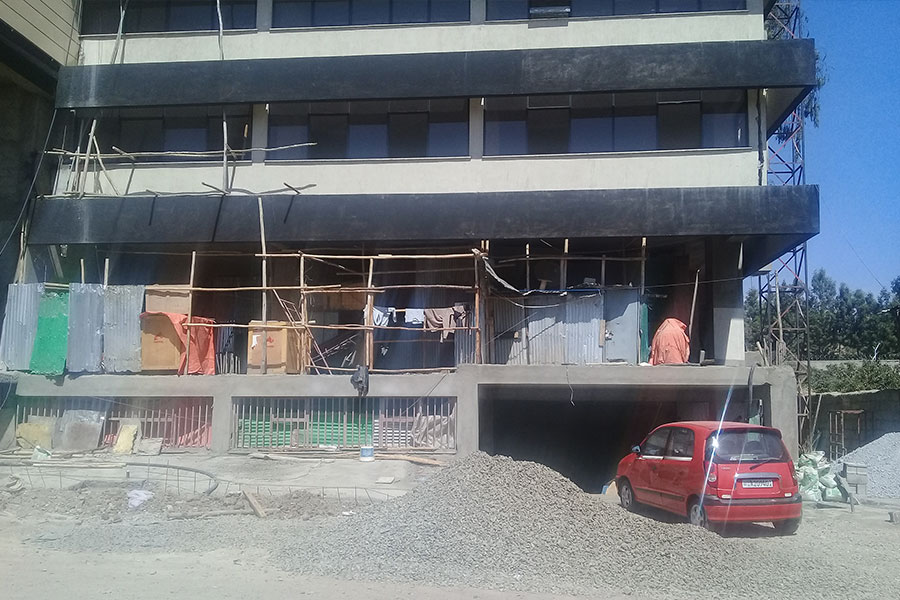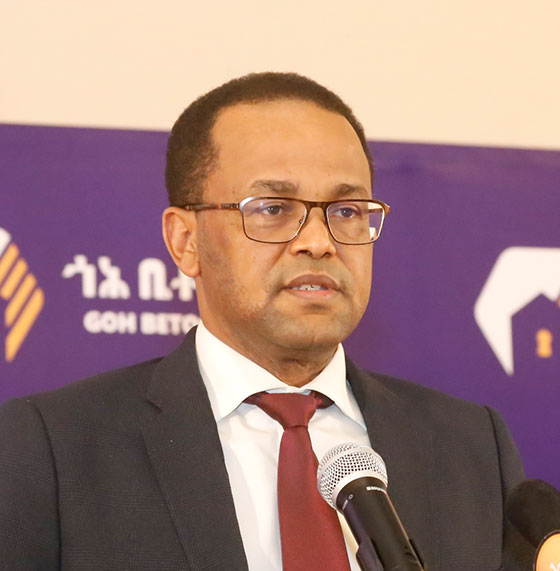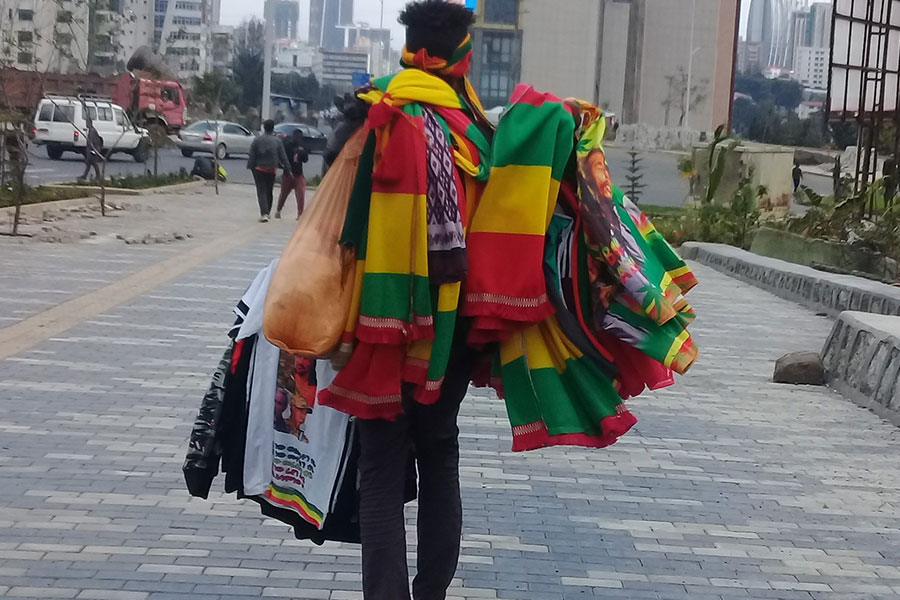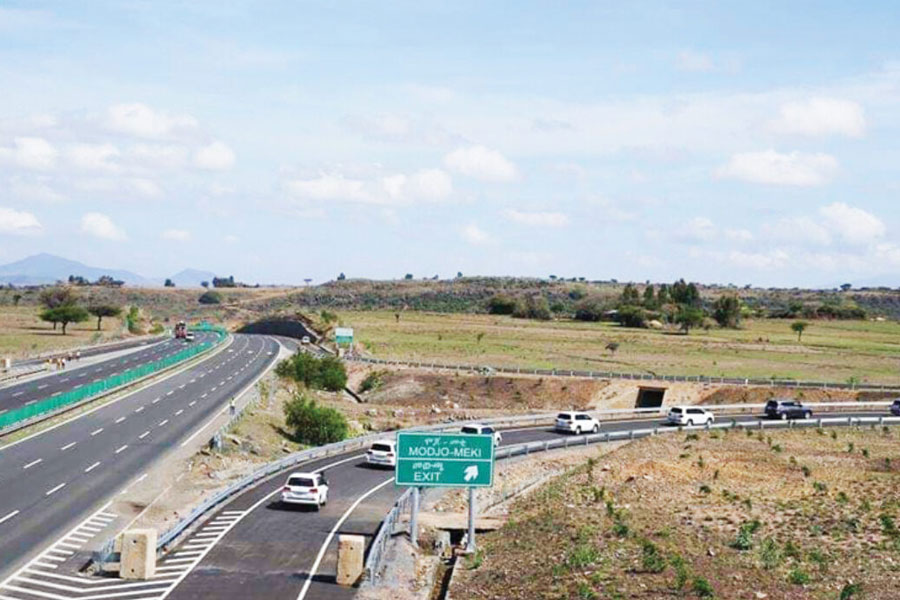
Radar | Dec 25,2021
Oct 2 , 2021.
Ethiopia`s Parliament will pick up a Prime Minister on Monday, October 4, 2021. The incumbent Prosperity Party (PP) holds hegemonic control over the federal legislative houses as its predecessor, the EPRDF, did for over two decades. Hence, its chairman, Abiy Ahmed (PhD), expected to swear in before MPs composed of all but a few of the opposition parties.
The same evening, Addis Abeba will be dazzled by an inaugural speech planned at Mesqel Square, reminiscent of the presidential inaugurations traditionally held at Capitol Hill in Washington D.C. No less than 10 heads of state are expected to attend this event, a grandeur Addis Abeba has not perhaps seen since the 1930 coronation of Emperor Hailesellasie Mekonnen, up at St. George Cathedral in Piazza.
Beyond the form, what will likely define the administration of Prosperitians under Abiy Ahmed is their enthusiasm for Ethiopianism, a nationalist ideology they share with the Emperor`s reign of four decades. Despite the fundamentally different political structures, the ideology is marked by a heavily centralised authority whose reach and influence are unbounded by levers of government. It has a vision of Ethiopia as an organic form of oneness, indivisible and with an identity overriding every other existent within the polity.
To his advantage, the Prime Minister chairs over a party that has lapped up nearly every constituency where elections took place. His party won a landslide victory from the polls held with a record-high turnout of voters, although the elections were far from inclusive. The same will probably be the case for the 47 constituencies where polling was held last Thursday in the Somali, Harari and Southern regional states and the Dire Dawa city administration. Nonetheless, this era will go down in history for the 72 constituencies, including the Tigray Regional State, where a civil war is raging, and famine underway, unrepresented in the new government constituted this week.
Once the Prime Minister forms his new administration, comprising of 21 cabinet portfolios and slimmed up federal agencies, it would be back to the nitty-gritty of governing a state in turbulence. The civil war in the north will reach its second year. The insurgency in the southwest has never been as visible or daring. Add to the mix the COVID-19 pandemic; it has become aggressive in claiming more lives than ever since it first surfaced in March 2019.
The compounded effect of all these in the economy is beyond telling. Going by surging international fuel prices and escalating global shipping costs, the rising cost of living will continue to havoc on citizens.
A few were dismissed as cynics when warning the gathering of the perfect storm since 2016. How all of these would pan out is anybody’s guess.
What could be apparent is that the battle lines are drawn, especially on the ideological front. The feathers are distinct, and some foes have turned friends. The bloody struggle for the country's soul between forces of Ethiopianism and ethnonationalism is back. A new generation subjected to the same horrors as their predecessors is an indictment of the utter failure in leadership of Ethiopia`s elites of all fronts.
Contending with such a reality will be a government whose ideological leaning is Ethiopian nationalism, in short Ethiopianism. Rhetoric is the best evidence for this. The Prosperitians have identified their greatest challenge to be winning an existential battle for sovereignty and territorial integrity of a country they believe is fighting for its breath. Beyond that, they want to restore Ethiopia’s “glorious past”, a declaration of faith that shows their passion for restorative nationalism.
When taken to their logical conclusion, as they would in an environment where democratic institutions are captured, all variants of nationalism become repressive. They toggle and clash with other identities, incurring the zeal of other groups that rise to resist. Ethiopian nationalism has been through this before. What ideological battle awaits Prosperitians, it will not be anything different from the replay of the past. It will be a script written in a setting of folding times and spaces. The past is here, and the future is now.
All past regimes at the helm of power must have learned that it is nearly impossible to vanquish ideological enemies, especially when those opponents are the nationalism of different colours. No nationalism rooted in the identities of groups - be it religious or lingo-cultural - ever really goes away.
Indeed, there are some caveats to the kind of nationalism the Prosperitarians seem to be exercising. They do deserve some credit for their efforts to recognise the constitutional quests of some groups. The most evident of this is the formation of the first new regional state, Sidama, a quarter of a century after the current constitution came to force. At least four more zones will rise to regional statehood in the coming few years. The regions have also grown more assertive in terms of economic decision making.
There are good and bad things to take with the political developments as states and the federal government organise power between themselves. Commendable should be the regional states increasingly taking their economic fates into their hands. If economic power is further decentralised to the lower administrative units of government, this will help the country realise its development aspiration better.
But politics is all about perception, and Ethiopia’s narrowly defined national discourse jumbles up everyone into one of two affiliations: Ethiopian nationalism and its ethnonational opponents. No caveats are allowed, it seems. Neither would it also be any different for the Prosperitarians, whose rhetoric has placed them in a political and cultural alliance with the forces that have professed Ethiopia's sanctity, indivisibility, and immortality.
It is not wrong in itself for Prime Minister Abiy’s administration to profess a defined ideology. The alarm should be where constitutional institutions have always been captured; an ideology grows unchecked and consumes everything else in its sight of vision. As long as it remains untested in the marketplace of ideas, where laws can protect dissident views and critics as an expression of political rights, the result will be illiberalism. This will be met by force by those that conclude that their voices will be heard only through the rumble of their guns or the terror they inspire. Again, the civil war in the north and the insurgency in the west are manifestations of this tension.
The logic behind the pluralism implicit in Ethiopia’s constitution is that conflicts that arise between millions of people living together could be mediated and moderated into a stable political settlement that constantly updates itself. Society reinvents itself through the contest of ideologies to produce an outcome that helps individuals rise to their potential.
Ethiopian nationalism should pass through a similar test and make its case for why it can serve society better. It has to overcome its insecurity of challenges from competing identities. Its adherents need to reflect deeper to rationalise their conviction beyond and above threatening sloganeering. They would do themselves enormous favour and engage their critics' and opponents constructively if they articulate the salient issues.
What does the ideology of Ethiopianism demand from citizens, whether or not they uphold it? Absolute obedience and submission, with no room for criticism and dissent? Does Ethiopianism endure challenges and contentions from different world-views on how society should be organized or reorganized? Is it secure in its skin to be contested in the free market of ideas? Will it tolerate the free expressions of its sceptics and organizations of its opponents, without fear of retribution from the state apparatus its diehard advocates control and discharge its power?
In addressing these, Ethiopianism can be moderated - as every nationalism should be - and open the space for other worldviews not only to contribute to its growth but compete fairly in the marketplace of ideas. This requires the democratisation of constitutional institutions, particularly of the judiciary`s autonomous existence.
PUBLISHED ON
Oct 02,2021 [ VOL
22 , NO
1118]

Radar | Dec 25,2021

Editorial | Feb 26,2022

Viewpoints | May 21,2022

Fortune News | Dec 05,2018

Radar | Aug 14,2021

Radar | Aug 28,2021

Fortune News | Sep 18,2021

Films Review | Sep 14,2019

Commentaries | Dec 19,2021

Fortune News | Dec 13,2021

Photo Gallery | 174784 Views | May 06,2019

Photo Gallery | 165007 Views | Apr 26,2019

Photo Gallery | 155254 Views | Oct 06,2021

My Opinion | 136727 Views | Aug 14,2021

Dec 22 , 2024 . By TIZITA SHEWAFERAW
Charged with transforming colossal state-owned enterprises into modern and competitiv...

Aug 18 , 2024 . By AKSAH ITALO
Although predictable Yonas Zerihun's job in the ride-hailing service is not immune to...

Jul 28 , 2024 . By TIZITA SHEWAFERAW
Unhabitual, perhaps too many, Samuel Gebreyohannes, 38, used to occasionally enjoy a couple of beers at breakfast. However, he recently swit...

Jul 13 , 2024 . By AKSAH ITALO
Investors who rely on tractors, trucks, and field vehicles for commuting, transporting commodities, and f...

Oct 18 , 2025 . By NAHOM AYELE
In a sweeping reform that upends nearly a decade of uniform health insurance contribu...

Oct 18 , 2025 . By BEZAWIT HULUAGER
A bill that could transform the nutritional state sits in a limbo, even as the countr...

Oct 18 , 2025 . By SURAFEL MULUGETA
A long-planned directive to curb carbon emissions from fossil-fuel-powered vehicles h...

Oct 18 , 2025 . By BEZAWIT HULUAGER
Transaction advisors working with companies that hold over a quarter of a billion Bir...